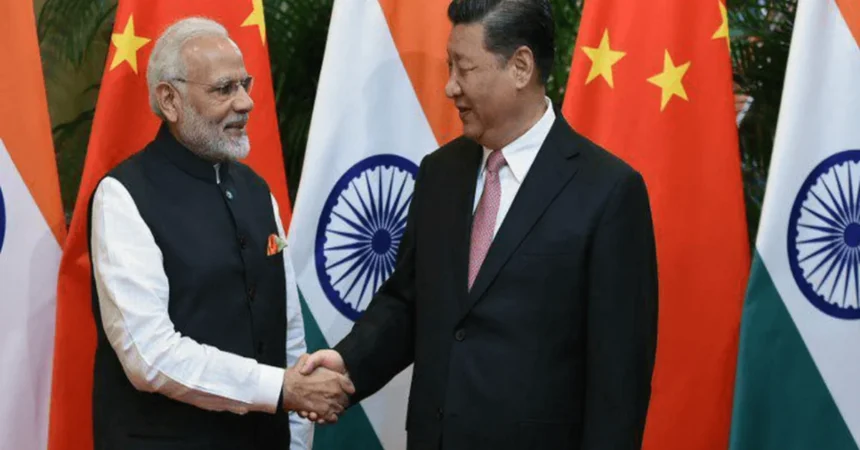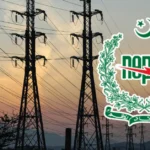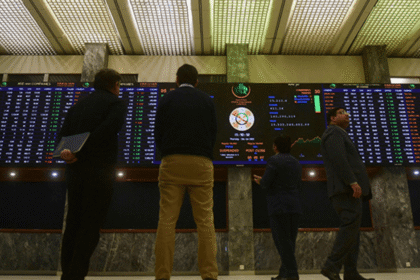In a significant diplomatic breakthrough, India and China have reached a new patrolling arrangement along the Line of Actual Control (LAC) in the Himalayas. This agreement is anticipated to facilitate disengagement and help mitigate the tensions that have persisted since the violent clashes between the two nations in May 2020. Specifically, the new arrangement focuses on patrolling in the Depsang and Demchok areas, which have been key flashpoints in the ongoing border disputes.
Background of the Agreement
The LAC has long been a source of contention between India and China, characterized by historical grievances and territorial disputes. Tensions escalated dramatically in 2020 when skirmishes resulted in fatalities and heightened military presence along the border. The violent encounters highlighted the fragile nature of peace between the two nuclear-armed neighbors, prompting urgent calls for diplomatic resolutions.
Since the incidents of May 2020, both nations have engaged in multiple rounds of dialogue aimed at de-escalation. The persistence of diplomatic efforts reflects a mutual recognition of the need for stability in the region. Despite challenges, the recent agreement marks a crucial step forward in restoring trust and communication between the two sides.
Details of the Patrolling Arrangement
While official announcements are still pending, early indications suggest that the agreement will provide a framework for more structured patrolling in the contentious regions of Depsang and Demchok. These areas have historically been points of friction, where military encounters have occurred frequently.
The new agreement aims to clarify patrolling protocols, which could significantly reduce misunderstandings and the potential for conflict. By establishing clear responsibilities for patrolling, both nations hope to create a more stable environment along the disputed border. This arrangement could also facilitate increased cooperation between military commanders, further contributing to de-escalation.
Upcoming Diplomatic Engagements
The timing of this agreement is particularly notable as Prime Minister Narendra Modi prepares for a visit to Russia for the upcoming BRICS summit. There is speculation that Modi and Chinese President Xi Jinping may hold a bilateral meeting during the summit, providing an opportunity to solidify the progress made in recent negotiations. Such a meeting could be pivotal in discussing broader issues beyond border tensions, including economic cooperation and regional stability.
The BRICS summit serves as an important platform for dialogue among emerging economies. With both India and China being significant players in this group, their engagement at the summit could have broader implications for international relations and economic strategies.
Recent Diplomatic Developments
This agreement follows a series of high-level diplomatic engagements between India and China. The latest round of talks took place on August 29 in Beijing, where representatives focused on reducing tensions and finding common ground. The continuation of diplomatic channels underscores both nations’ commitment to pursuing peaceful resolutions to their disputes.
Historically, such dialogues have been fraught with challenges. However, the recent agreement indicates a willingness on both sides to prioritize stability. The goal is not only to resolve immediate tensions but also to lay the groundwork for long-term peace and cooperation.
Significance of Stability Along the LAC
Stability along the LAC is of paramount importance for both India and China. For India, ensuring security along its northern borders is critical to maintaining territorial integrity. Any escalation of tensions could divert resources from other pressing domestic issues, including economic development and social stability.
For China, a stable relationship with India is equally crucial. As it seeks to expand its influence in South Asia, maintaining peace with its neighbors is essential for its broader regional strategy. Furthermore, a peaceful border can enhance trade opportunities and promote economic interdependence, benefiting both nations.
Community and Expert Reactions
The initial response to the patrolling agreement has been cautiously optimistic. Political analysts and civil society organizations view it as a positive step toward peace and stability. Analysts emphasize the need for sustained dialogue and actionable commitments to follow through on the agreement, urging both governments to remain committed to diplomatic solutions.
Civil society groups have called for transparency in the negotiations and subsequent actions taken by both governments. Engaging the public in these discussions is seen as vital for maintaining support for diplomatic efforts and fostering a culture of peace among the citizens of both nations.
Future Prospects
While the patrolling agreement is a significant development, it is crucial to recognize that the road ahead remains complex. Both nations will need to navigate various challenges, including national sentiments, geopolitical dynamics, and domestic pressures. Sustained engagement and a commitment to dialogue will be essential for ensuring that this agreement translates into tangible outcomes.
Experts suggest that establishing confidence-building measures could play a key role in maintaining peace along the LAC. This may include regular military exchanges, joint exercises, and enhanced communication protocols to prevent misunderstandings. Such measures can help both nations build trust and create a framework for cooperation that extends beyond mere conflict avoidance.
The Role of Multilateral Forums
In addition to bilateral discussions, multilateral forums may also provide opportunities for India and China to engage on border issues. Organizations such as the Shanghai Cooperation Organization (SCO) and BRICS can serve as platforms for dialogue, allowing both nations to address broader regional security concerns collaboratively. These forums can also facilitate discussions on economic cooperation, climate change, and other pressing global issues, further solidifying relationships between member states.
Historical Context of India-China Relations
To fully understand the significance of the current agreement, it is essential to consider the historical context of India-China relations. Since gaining independence, India has viewed China with a mix of caution and interest, particularly due to the 1962 Sino-Indian War, which left a lasting impact on bilateral relations. Despite periods of cooperation, such as trade and cultural exchanges, border disputes have consistently emerged as a significant challenge.
In recent years, China’s assertive territorial claims and India’s increasing strategic partnerships with other nations have added layers of complexity to their relationship. This ongoing dynamic necessitates that both countries find effective ways to manage their differences while fostering cooperation.
The patrolling agreement between India and China represents a hopeful step toward reducing tensions along the LAC. By addressing critical areas like Depsang and Demchok, both nations are taking necessary measures to enhance stability and foster dialogue. As diplomatic efforts continue, the international community will be watching closely to see how these developments unfold and contribute to a more peaceful and cooperative regional environment.







